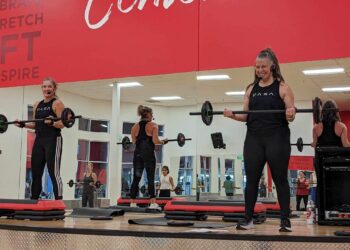Approximately 1% of the world’s population lives with autism spectrum disorder (ASD), including one in every 54 children in the U.S., according to the Centers for Disease Control and Prevention. Research shows that physical activity offers many physical, cognitive and social benefits for these individuals.
Unfortunately, they are being left out of physical education, even with the federal mandate, Individuals with Disabilities Education Act 100.18. This is both a problem and an opportunity for the fitness industry.
Exercise is Good for Everyone but Especially for those with Autism
Continuous research studies reveal that exercise can positively impact both the health and challenges of those with autism. As further evidence, in the National Survey of Autism Treatment Effectiveness, autism parents rated exercise as the No. 1 treatment for those with autism.
In addition to the health-related benefits, exercise has been shown to build confidence, increase on-task behavior and improve academic performance for those with autism. A study published in the American College of Sport Medicine Journal, Medicine and Science in Sports and Exercise, reported that 10-minutes of low-to-moderate intensity exercise produced significant reductions in stereotypical behavior in children with autism. A 10-minute exercise is an attainable goal for fitness professionals to set for their new clients.
The Highest Standards in Both Science and Practice
It has become a common trend in exercise education to create focused programs and certifications so exercise professionals can help diverse populations. The Autism Exercise Specialist Certificate is one of the newest education programs that will empower professionals and clubs to bring exercise to this population.
If You Build it They Will Come and Keep Coming Back
If a club or fitness professional’s intention is to offer individual or group exercise sessions without proper education, it will surely fail. Successfully engaging a person with autism into any new activity — especially exercise — will take patience, creativity and evidence-based teaching practices. One of the most proven practices to teach those with autism are visual supports, such as pictures. When you begin to teach exercise, using these same strategies will be familiar and effective.
A great marketing campaign may quickly get them to walk in the door, but if you don’t understand how this community learns best, they will leave even faster — and never return. When done properly a club and trainer can have a client for life.
Stay ahead in the fitness industry with exclusive updates!
David S. Geslak, BS, ACSM EP-C, CSCS,the founder of Exercise Connection, has pioneered exercise tools and programs to engage and improve the lives of those with autism. He created the award-winning, research-supported app, Exercise Buddy®, and in partnership with American College of Sports Medicine (ACSM), he developed the Autism Exercise Specialist Certificate®. This was ACSM’s No. 2 most popular CEC Course of 2019 and 2020. His commitment and methodology to bringing exercise to those with autism has been enthusiastically embraced around the world by professionals, higher education and the autism community.











